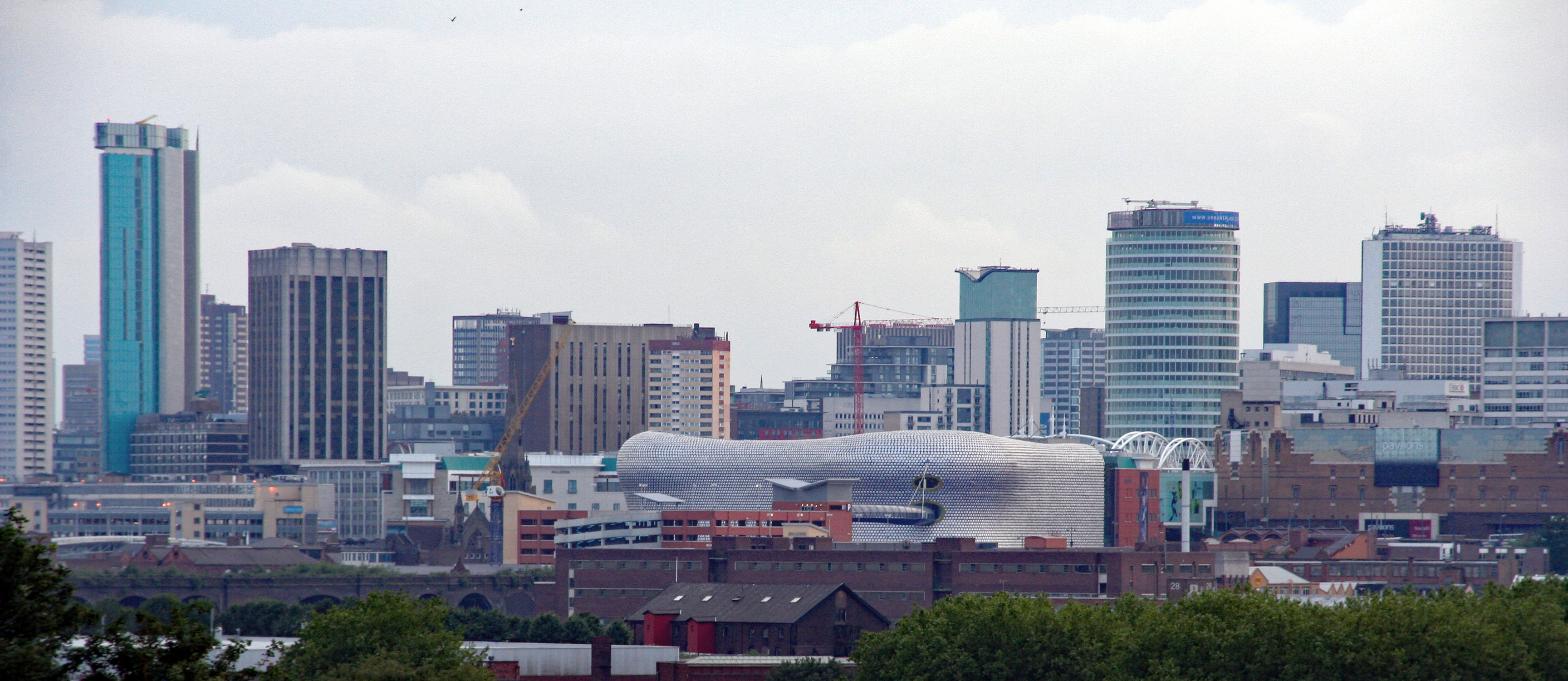
Comment Writer Abby Spreadborough recounts her experience of being spiked in a Birmingham club, and how the burden of responsibility for determining what had happened in the hours she lost was put on her
Warning – this article contains themes of sexual assault and spiking that some readers may find uncomfortable
I was wearing a red skirt, black top, velvet jacket and high heeled boots. People so often want to know what you had been wearing when you suspect that you have been sexually assaulted. As if sexual assault is a conscious choice, something one chooses for themselves, and not something that is grossly inflicted upon you by another human being. In a hyper-sexualised world, clothes, or lack thereof, are seen as a marker – a visual indication of consent.
Some say that it is impossible to articulate trauma, or even that it is unethical – that ephemeral, subjective words can never convey the incident faithfully. Nevertheless, in the following, I attempt to articulate what has happened to me. It is important to note that much of what occurred that night exists in my mind as an impenetrable thicket. Like a dark, disorienting woods in which my mind wanders, arms outstretched, trying to grasp at fragments of my memory. There is nothing.
People so often want to know what you had been wearing when you suspect that you have been sexually assaulted
I have told so many people what has happened to me that my experience no longer feels like my own, much like how my body no longer feels like my own. The events feel more like a narrative, a sparse story, made up of momentary flashes that dart through my mind inviting speculation and dread. It begins in a bar and finishes with me being found screaming. It ultimately ends in a startlingly cruel realization about the neglect of young women.
The police came to visit me the following morning, and in the haze of withdrawal from a mind and state altering substance, I was unable to answer many of their questions. They asked me pointedly if I had been raped and I didn’t know how to respond; perhaps I didn’t want to admit that rape could have happened. I was told to contact friends from that evening – it may jog my memory, they said. This did nothing, so my suspicion only grew, and it became clear that whatever I was given was particularly potent as I had retroactively forgotten events.
Days later I was unceremoniously notified by a 101 operator that my case had been closed without my knowledge. The police had dismissed it for being riddled with ambiguities – it would make for a costly drawn-out investigation which wasn’t worth the taxpayer’s money. Students being drugged and forgetting their evenings happened all the time; I was merely another naive victim who hadn’t been careful enough. As many had told me, I had ‘learnt my lesson’. I wouldn’t be that careless again.
Once again, it was as if I had done this to myself. As if I had walked onto Broad Street that cold December night and advertised myself as a willing participant in someone’s perverse revelry. I would have to continue to investigate myself, or forget it all entirely. Put it to the back of my mind and leave it, as some had said, or rather brush it under that vast rug to rot and fester with many other accounts of spiking and sexual violence.
I had sincerely hoped that Birmingham would become a home to me, but now it felt distant and indifferent
I went to get tested by myself – they call it a self-referral. I travelled across Birmingham, bobbing between the surface and the subterranean of the city as I went. I had sincerely hoped that Birmingham would become a home to me, but now it felt distant and indifferent.
When I arrived at the clinic it was hidden away. No signage, only an unmarked buzzer I’d been told about on the phone, then a woman standing at the top of the stairs gesturing me forward away from the silent waiting room populated with the city’s sickly young and old inhabitants.
What followed was hours of questioning and paperwork before I could be tested. I was told that I had lost much time already. I was five days into a seven-day window required for testing, with each day progressively eating away at forensics’ chances of finding DNA evidence. There is no time to mourn when something so awful happens to you. No time to sit, your body shaking, heartbeat unsteady, eyes bleary and sobbing when such a thing may have happened to you.
The women were shocked by my matter of fact tone when recounting the story, not at all sensing the emotional deluge that was to come. Nevertheless it came, and it resembled the exact hysteria I had felt upon the night of my drugging.
Following this I was told that despite the four hours of questioning and exam I had endured, the head forensic scientist may still decide that my case was too ambiguous, not worth the time and not worth the cost of testing. Even then, as I was so far into the window for testing, they would never definitively say whether or not I had been sexually assaulted. And I wouldn’t receive my results anyway until late January. There are no quick fixes in such cases, only quick victims.
It seemed as though that those in positions of power were continually halting my search for answers. I felt that my sanity depended on knowing what had happened. If I was able to be sure of the facts, I would no longer be powerless. Nurses, previous victims of such attacks and welfare officers would listen to me whilst those with the power to do something would disregard me. The time spent waiting for answers was paralleled by the time I would have to wait for counselling. Whilst the university could match me with a counsellor in time for the second semester, the NHS would take up to 12 weeks to find someone suitable. The interim was filled with isolation and the expectation that victims would repress whatever had happened to them and go on about everyday life.
Such a life becomes laborious to lead. You are unable to sleep, unable to be present and unable to move on. Half of the time I was in a dissociative state. I looked at the world, at my body, and none of it felt real. I was more like some unethical simulation, in which I was stuck in bland beige rooms blankly staring at stock images of sunflowers, sitting in uncomfortable tan seats, following the cracks up the walls to eternity. And that at any moment I might be able to wake up again, just as I had awoken screaming that December evening.
It happens on most nights, in most cities and most countries. Men and women robbed of their dignity, identity, and sometimes even their lives
Enraged I had tried to contact them, all I was able to reach were robotic voices, echoing the monotone voice I had adopted upon telling people what had happened to me. I increasingly felt as though the world was silencing me, slamming the door in my face and telling me that it was probably best that I didn’t know what happened to me in the small hours of that night.
But it will happen again, as it happens on most nights, in most cities and most countries. Men and women robbed of their dignity, identity, and sometimes even their lives for the simple pleasure of another human being.
I have tried to imagine who drugged me. What drives a person to commit such an act? What do they look like? What’s their profession? I worry that I may have passed them in the street, walking to class, at a bar. They are an indistinct silhouette haunting me, slinking about in dark corners, emerging in the centre of the dance floor amongst flashing lights only to slip away once more, receding into nothing. Unfathomable and unknowable.
Many victims don’t report instances of spiking and the robbery and/or sexual assault which follows this initial offence. The main reason for not reporting is embarrassment, followed by the belief that the police would not be able to help them. Given my experiences in the past month I completely understand these reasons, but I still urge survivors to come forward. While you may have to endure the ill-informed assumptions of some and the indirect criticism of others, the police will only be able to act if they have a comprehensive understanding of the nature and frequency of these incidents.
Since 2015 there has been a 108% increase in spiking incidents, yet the crime is still vastly under-reported. Similarly to my case, victims feel that they have no evidence to provide the police with, meaning that there is little point in reporting it. Despite this statistic, following my eventual contact with the nightclub and discussions with the police, there is little being done.
From the club I received a half-hearted apology followed by defensive comments about the ‘standards and procedures’ of the establishment. Victims have the right to find out what has happened to them and if this cannot be satisfied, they have the right to have quick, easy and free access to support services.
Although I was lucky enough to access these services as a student, others might not get the chance to heal. They may end up stuck on an NHS waiting list or not reporting the incident at all. Whilst I urge these individuals to come forward, more needs to be done by those in positions of power. Club employees and owners should be safeguarding their customers and the police should be taking these reports seriously in order to ease the fears and concerns of those who are reluctant to report cases of spiking or sexual assault.
Opening up may not only help the police situation but yourself. To talk to those you trust can be incredibly liberating. To offload the mix of confusing yet perfectly valid emotions that exist in the wake of trauma will unburden you. It will ensure that an event cannot define the rest of your time at university. You can take back control over your narrative so that you are no longer a victim, but yourself once more.
If you have been affected by the issues raised in this article, the following organisations can be contacted for advice and support:
Rape and Sexual Violence Project
Email: info@rsvporg.co.uk
Telephone: 0121 643 0301
Horizon
Email: enquiries@horizonsarc.org.uk
Telephone: 0808 168 5698

Comments